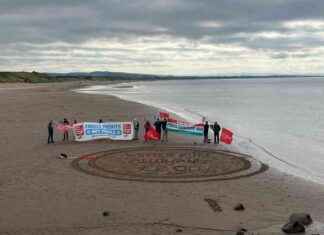Private School VAT Impact in Edinburgh: A Deep Dive into the Effects of Recent Policy Shift
Edinburgh, known for its high concentration of privately educated pupils, is grappling with the aftermath of VAT’s introduction on tuition fees. The policy change, aimed at generating revenue to recruit new teachers, has sparked a heated debate among the city’s education leaders and stakeholders. A month since its implementation, Edinburgh Correspondent Donald Turvill delves into the current impact and potential long-term consequences.
Principals and governors of Edinburgh’s private schools have raised alarm bells over the envisaged effects of the VAT imposition. Concerns about exacerbating social inequality, destroying the private sector, and wreaking havoc on the broader education system have dominated the discourse. Amid these dire predictions, Anthony Simpson, head of Edinburgh’s Erskine Stewart Melville School (ESMS), the largest independent school family in Europe, expressed uncertainty about the future repercussions of the policy change.
Simpson disclosed potential cuts to staffing and bursaries at ESMS due to the loss of charity status benefits. While fears of an exodus from private to state schools post-VAT have not materialized, with only 58 pupils transitioning thus far, the city’s education landscape remains a topic of keen interest. The City of Edinburgh Council has seen 144 applications for places from private-schooled children, indicating a shifting dynamic in school placements.
Concerns and Challenges in Transition
Despite the council’s assurances of adequate capacity for all students, concerns over local catchment school availability persist. Parents like Louise Gibson, whose children attend private schools, face a lack of space in nearby state schools, questioning the accuracy of capacity reports. Christopher Cowdy, a Conservative Edinburgh councillor, echoes these sentiments, citing discrepancies in the capacity review and the need for strategic placements.
In response to VAT’s financial pressures, private schools in Edinburgh have raised fees by an average of 17%, leading to increased financial burdens on families. Institutions like George Heriots and Fettes College have implemented fee hikes to offset the tax impact, while smaller schools anticipate challenges in maintaining affordability. The impending mergers of schools like ESMS aim to streamline operations and adapt to the changing financial landscape.
Financial Implications and Future Outlook
Analysis of Edinburgh’s private school financial reserves reveals a complex picture, with some schools sitting on significant reserves while others struggle to break even. The imposition of VAT is expected to generate around £40 million in revenue, raising questions about the allocation of these funds to support the city’s education system as promised by policymakers. Dr. Scott Arthur emphasizes the importance of transparent financial planning to address concerns about private school sustainability and public school support.
As the city navigates the repercussions of VAT on private schools, questions linger about the long-term impact on student enrollment, staffing levels, and educational quality. Councillor Cowdy emphasizes the need for thorough research and planning to address potential challenges in the education sector. The coming years will reveal the true extent of VAT’s impact on Edinburgh’s educational landscape, underscoring the importance of collaboration, transparency, and foresight in navigating policy changes in the education sector.
































